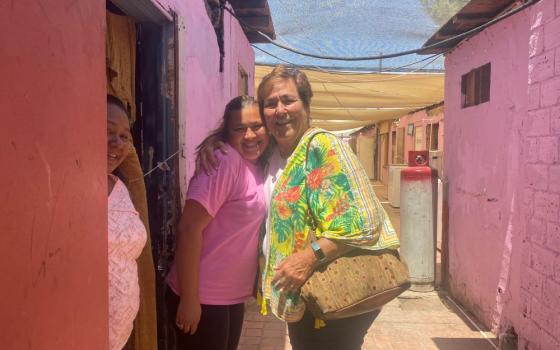The University of Notre Dame announced the results of its services and support for students who are "LGBTQ" (I confess, I had to check to see what the 'Q' stood for - 'questioning') on campus. Among other things, the university will permit a student group for LGBTQ students, and appoint a full-time staffer to oversee the implementation of the policies recommended by the review. You can read Father Jenkins' announcement, with links to the various statements, here.
Predictably, the Sycamore Trust, which suggests its goal is to protect the Catholic identity of Notre Dame but in fact is more concerned with protecting a certain variety of conservative identity on campus, expressed this concern:
Surely it is predictable that a group whose organizing principle is same sex attraction is likely to be a forum, overt or covert, for opposition to the Church’s teachings about homosexuality. It may also become an instrumentality in the student ”hookup” culture.
Are we to assume that the Sycamore Trust would oppose an on-campus chapter of COURAGE, the organization for gay men and women who try to live in full accordance with the Church's teaching?
The Cardinal Newman Society was surprisingly muted in its commentary.
And, big kudos to Bishop Rhoades of Ft. Wayne-South Bend, who issued this statement on Notre Dame's plan:
One of the essential characteristics of a Catholic university is “fidelity to the Christian message as it comes to us from the Church” (Pope John Paul II, Excorde ecclesiae). In its recently released Pastoral Plan, the University of Notre Dame clearly affirms its fidelity to Catholic Church teaching on human sexuality by affirming that “sexuality is ordered to the conjugal love of man and woman” and that “the deliberate use of the sexual faculty, for whatever reason, outside of marriage is essentially contrary to its purpose.” It affirms the teachings of the Church on the commandment and vocation of love, the virtue of chastity and its expression in friendship, the importance of self-mastery, and the call to holiness. The Planaffirms Catholic teaching that men and women who have homosexual tendencies “must be accepted with respect, compassion, and sensitivity.”
It is vitally important that the Foundations of the Pastoral Plan, which express Notre Dame’s fidelity to Catholic teaching, inform and guide the implementation of the Plan, including the vision, programs and activities of the new student organization that is being formed. The Pastoral Plan states that “the organization’s purpose arises directly from the University’s Catholic mission and its aspiration to create a community where all may flourish and feel welcome, where we aspire to an even deeper understanding and appreciation of Catholic teaching, and where the human dignity of each Notre Dame student is valued.” It is my hope and prayer that the rich Catholic teaching on sexuality, teaching that serves the true good and happiness of the human person, will be embraced by the students and all involved in the implementation of the Pastoral Plan. I hope that the organization will be helpful in providing support for the students, thus preventing the experience of isolation and alienation which are “risk factors for an unhealthy life, including unchaste behaviors” (USCCB, Ministry to Persons with a Homosexual Inclination). I also hope that the Pastoral Plan will be of support to all students at Notre Dame in living a chaste and holy life according to the teachings of Jesus and His Church.
Here is the bottom line for me on these issues. The Church's theological reflection on homosexuality is inadequate at the moment, usually crammed into the worldview that existed for a very long time that assumed that the sexual activities of gay people were the perverse acts of straight people. But, in the past forty or fifty years, it has become obvious that homosexuality is, in some sense, constitutional, it is not an aberrant choice made by a heterosexual, but an experience of self by a non-heterosexual. The language about "intrisically disordered" should be dropped entirely because it ran the danger of creating a new category of sin, not a vice like the seven deadly to which we are all prone, nor a specific act like stealing a car, but a disposition that was itself flawed and unique to certain persons. I have no idea how the future debates about the moral issues raised by homosexuality will play out, but I do know that Notre Dame is here insisting on the fact that, whatever our theological views on human sexuality, we also have a Christian obligation to "create a community where all may flourish and feel welcome, where we aspire to an even deeper understanding and appreciation of Catholic teaching, and where the human dignity of each Notre Dame student is valued." That, too, is part of our Catholic moral tradition. Notre Dame is right, and even courageous I think, to insist that this new initiative is no appeasement to the ambient, secular culture but is, instead, a distinctly Catholic expression of human solidarity and Christian compassion.




